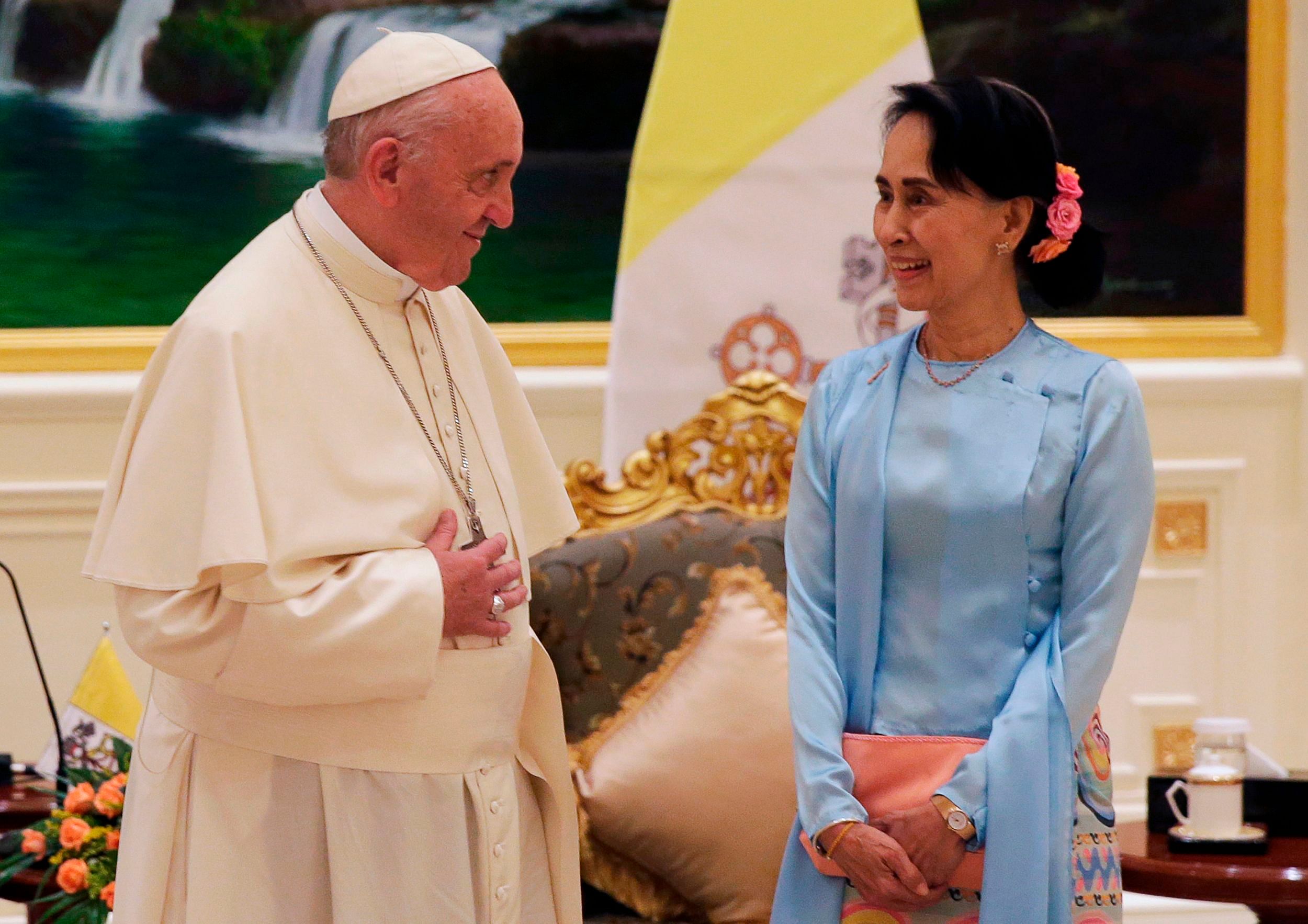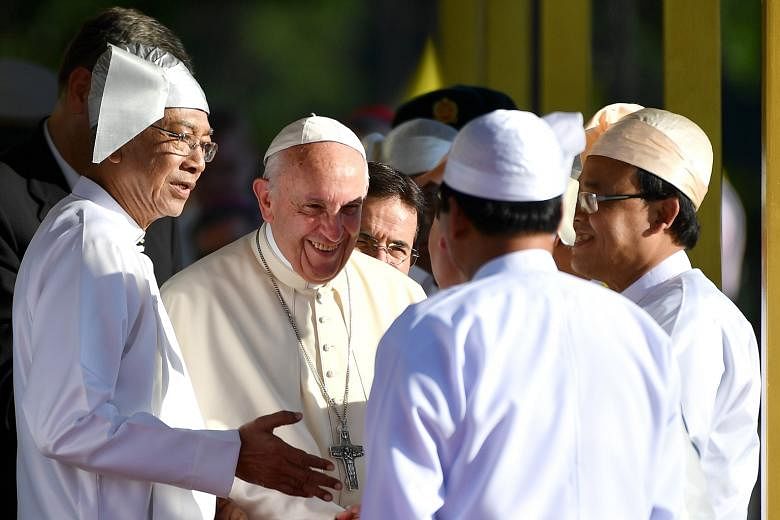Pope Francis called for respect for each ethnic group and its identity in Myanmar, amid international scrutiny over the mass exodus of Rohingya Muslims from its troubled Rakhine state.
Speaking to officials and diplomats in Naypyitaw yesterday after meeting Myanmar's de facto leader Aung San Suu Kyi, he said: "The future of Myanmar must be peace, a peace based on respect for the dignity and rights of each member of society, respect for each ethnic group and its identity, respect for the rule of law and respect for a democratic order that enables each individual and every group - none excluded - to offer its legitimate contribution to the common good."
He did not, however, mention the Rohingya Muslims. Over 600,000 of them have fled from Rakhine and crossed the border to Bangladesh since August, driven by a scorched-earth campaign of the Myanmar military against Rohingya insurgents. The military, or Tatmadaw as it is known locally, denies many reports by the United Nations and human rights groups that troops killed, tortured and raped Rohingya to drive them from their villages.
The Rohingya are referred to as "Bengali" locally and many avoid using the word "Rohingya", lest it lends weight to the group's claim as a unique ethnic minority.
Before his arrival, the Pope had been warned against using the word "Rohingya" in case it inflames tensions in Myanmar and turns public sentiment against the country's tiny Catholic minority. Just 6.2 per cent of its population is Christian and about 1 per cent Catholic.
"Religious differences need not be a source of division and distrust, but rather a force for unity, forgiveness, tolerance and wise nation-building," the Pope said yesterday. "The religions can play a significant role in repairing the emotional, spiritual and psychological wounds of those who have suffered in the years of conflict."
-
Oxford strips Suu Kyi of Freedom of the City award
-
LONDON • Oxford, the English city once home to Myanmar leader Aung San Suu Kyi, has removed her Freedom of the City award for her "inaction" in the face of oppression of the Rohingya.
"When Aung San Suu Kyi was given the Freedom of the City in 1997, it was because she reflected Oxford's values of tolerance and internationalism," the city council said in a statement issued late on Monday. "Today, we have taken the unprecedented step of stripping her of the city's highest honour because of her inaction in the face of the oppression of the minority Rohingya population."
Oxford's world-renowned university removed portraits of Ms Suu Kyi, a former student, from its walls in September. Her late husband, Mr Michael Aris, was a lecturer there, and the couple lived and raised their two sons in the city.
AGENCE FRANCE-PRESSE
Pope Francis, who in August had appealed for an end to the "persecution" of "our brother and sister Rohingya", had pledged ahead of his arrival in Myanmar that he was visiting the nation "in a spirit of respect and encouragement for every effort to build harmony and cooperation in the service of the common good".
Myanmar's powerful commander-in-chief, Senior General Min Aung Hlaing, visited Pope Francis on Monday. After the meeting, the military chief's office declared on Facebook that "Tatmadaw is making efforts to restore peace" and "there is no religious discrimination in Myanmar as the country ensures religious freedom".
Some in Myanmar, meanwhile, have drawn pride in the Pope's visit. Yangon resident Tin Naing Tun, 30, a Buddhist, told The Straits Times: "He is visiting Myanmar now because our country is open and safe."
Peace advocates like Mr Kyaw Lin Oo, associate director of Yangon-based Centre for Peace and Reconciliation, were circumspect about his visit. He told ST: "I think the Pope can give friendly advice, but we also have our own (unique) situation... I also hope he can bring our messages from the government and the Tatmadaw to the world. "

Pope avoids mention of Rohingya in Myanmar
Pope Francis met Myanmar State Counsellor Aung San Suu Kyi in Naypyitaw yesterday, even as the Myanmar leader continued to face international outrage over the treatment of Rohingya and their mass exodus from Rakhine state. The leader of the Roman Catholic Church yesterday called for respecting each ethnic group and its identity in Myanmar, but did not mention the Rohingya Muslims in particular. More than 600,000 Rohingya have fled into Bangladesh since August following a crackdown on Rohingya insurgents by the Myanmar military.

